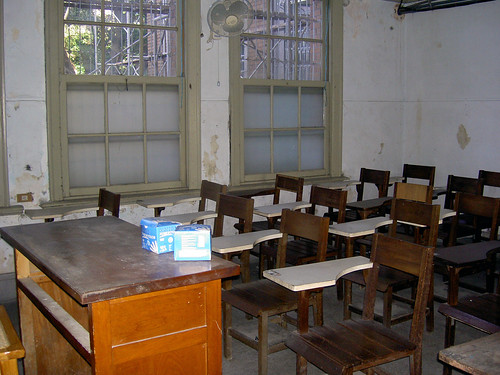 Past:
Past:I remember getting the ICT bug back in 1995, I was at an Intermediate school in my first year and they had just put in a suite of computers and server for what I can imagine wouldn't have left much change from $100'000. I have to admit that most of what I was doing at that time was using the technology to print shiny and bright new resources for my classroom, many of these I then photocopied. The same year we had a planning day whereby each teacher created a unit, it was collated into a book and each teacher was given a copy (My introduction to school collaboration). I bought my first desktop computer soon after for $3500 with a whopping 32MB of RAM and 2GB Hard drive (Ouch!!). The following year I was Deputy Principal at a nearby Intermediate school and set about getting a suite installed there (but better ...evil laugh). I had to have all the latest software and of course the internet. We made up rules and guidelines as problems arose and trust me there were lots of problems and as the technology rush came from the corporate world saying buy! buy! buy! I was all too willing to try out the newest gadget with a resounding yes! yes! yes! (Bill Gates was God). It was an amazing setup but in the year 2009 not a scrap of that technology still exists and I couldn't have burned enough CDs and done enough backups to save all the work I'd done in the past for use today ...
It seems like such a waste but in reality it was a progression that many schools were going through and there were no alternatives. I like to consider those days as pioneering. Basically, we found out what we didn't want happening with ICT in the classroom, augmented our programmes with ICT a bit and dreamed of the possibilities of what could happen in the classroom. New Zealand's curriculum was evolving at the same time and teachers were used to expecting change. With the introduction of web 2.0 and a sound ICT infrastructure nationwide we dreamers are starting to see everything happen that we wanted more than a decade ago.
Present:
Perhaps you have a past experience to share.
P.S: I remember when they put the 'C' in I.T
Present:
- I own a printer but don't use it except to occasionally scan something.
- I have a lease laptop - thank you!! Imagine how hard it would have been integrating ICT if teachers didn't have laptops - obvious but brilliant none the less.
- All my planning is online and can be shared with other teachers via a weblink.
- I don't have to do all the work on a project because we collaborate now and someone always has a great example to work from.
- I have way more friends. Geeks are the popular kids in the playground now.
- We don't have to buy software anymore because someone wants to give you their product for free.
- I can actually work from home if I want to and sometimes I really want to.
Perhaps you have a past experience to share.
P.S: I remember when they put the 'C' in I.T











